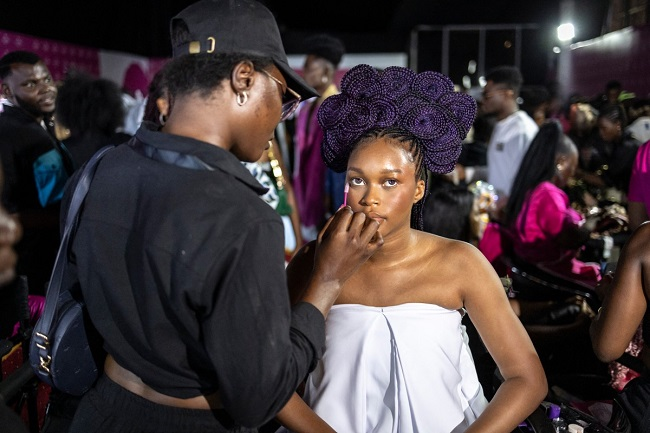
When Lagos Fashion Week (LFW) arrives, it’s not just the designers who define the moment. Hair, make-up, and skin finish are just as essential in shaping what audiences see. Beauty isn’t secondary; it’s part of how the story is told. But who’s really driving those looks? Are beauty brands and artists pushing creativity, or are they being boxed in by commercial priorities?
At any major fashion week, the beauty structure looks similar: hair sponsors, make-up teams, nail artists, and accessory stylists working alongside designers. In Lagos, this network blends local African talent with global beauty brands, each trying to influence the show’s overall aesthetic.
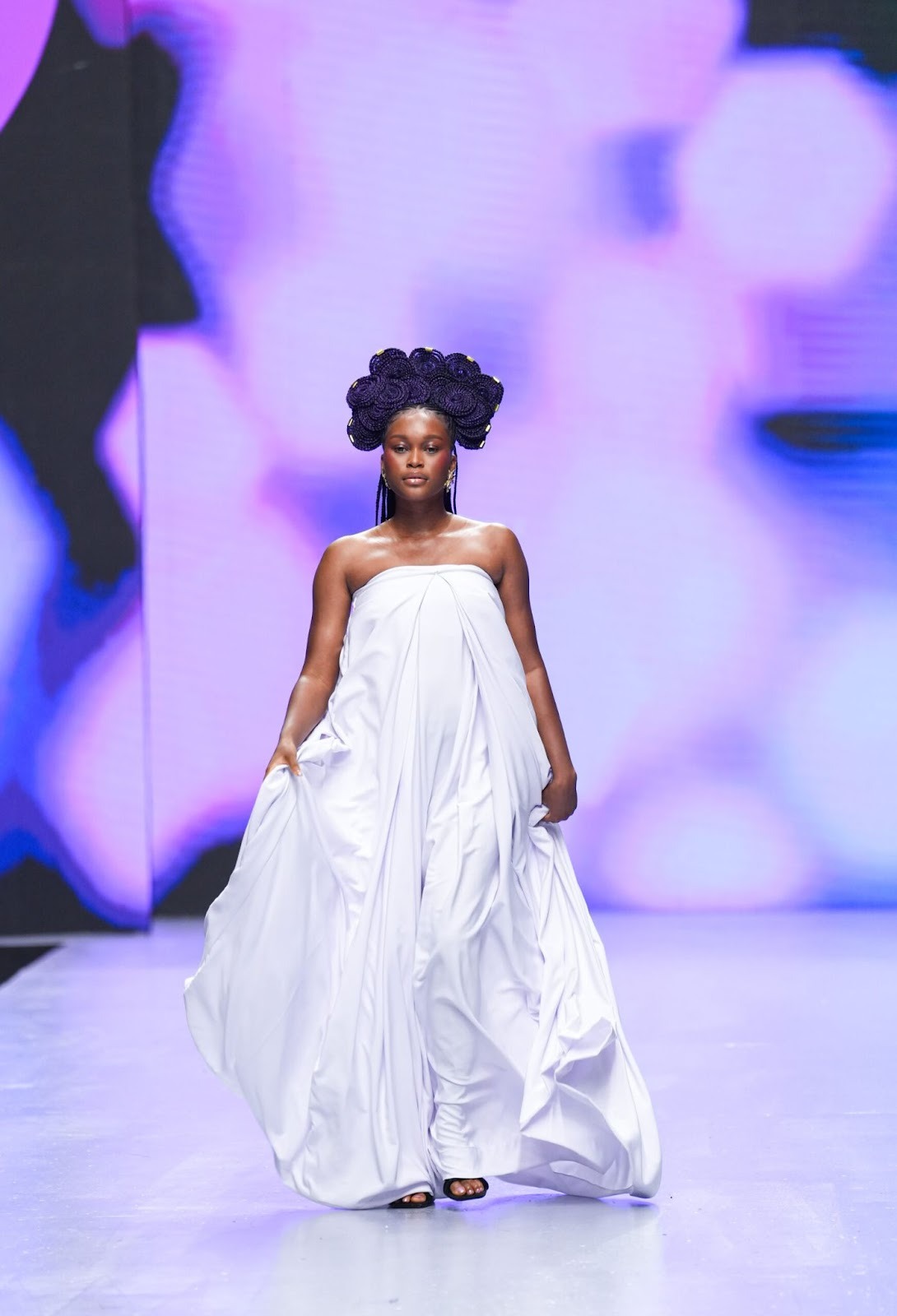
A key player is Lush Hair Nigeria, the official hair sponsor for LFW over the past two years. Their partnership has helped them rebrand as both premium and inclusive, bridging everyday stylists with high-fashion creatives. It’s smart business, but it raises a valid question: when a brand funds a show, how much of the creative direction becomes theirs?
There’s always a tension between artistic freedom and commercial obligation. Sponsorships bring visibility and funding, but they also come with expectations. A brand might request specific product use or uniform hairstyles that reflect its image. That can quietly limit a designer’s ability to experiment.
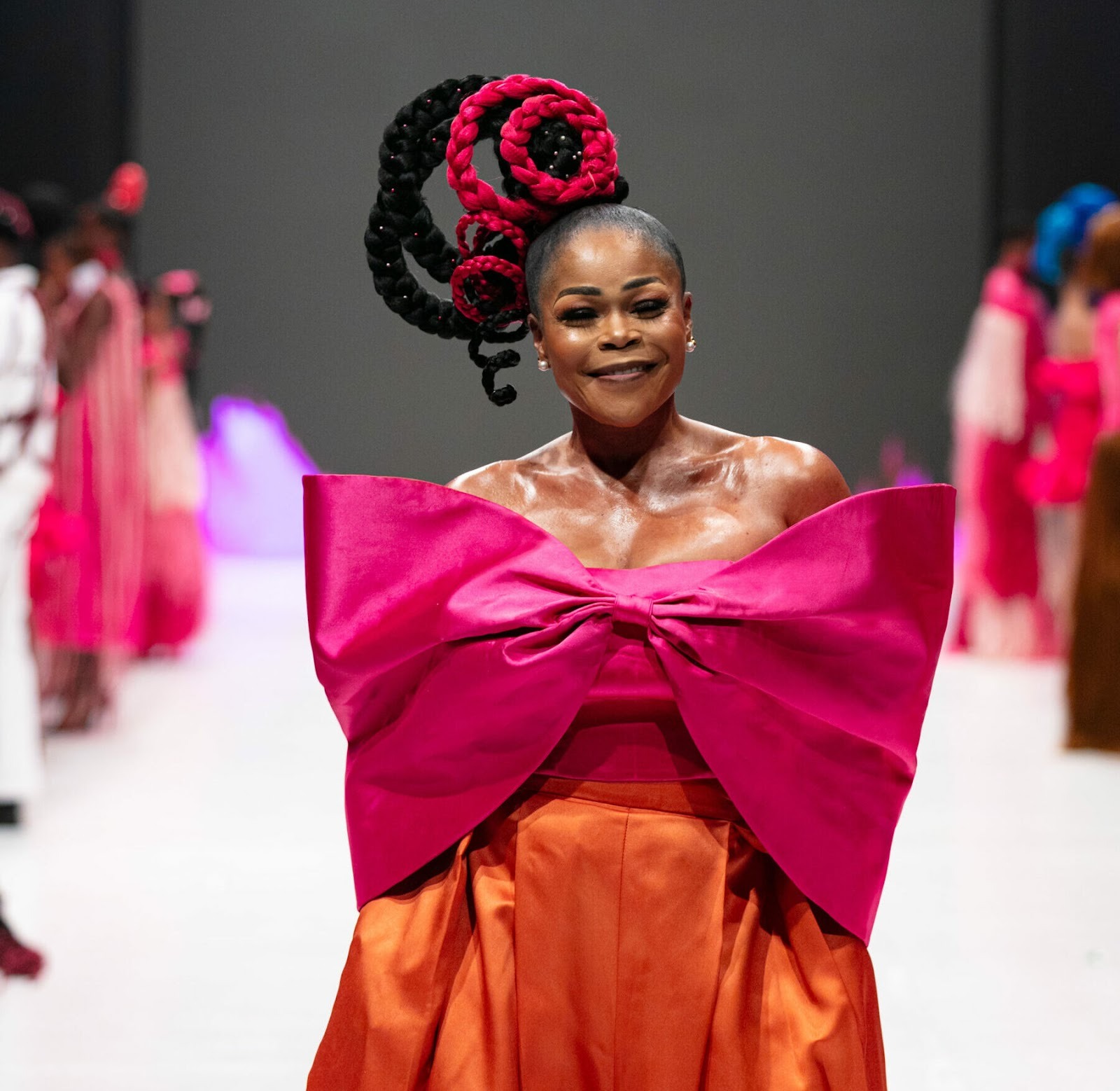
Some partnerships, though, find the right balance. Beauty teams that provide structure and skill without overshadowing the designer, and allow creativity to flow. One strong example came when Lush Hair created full runway looks using their own extensions at LFW. It was bold, relevant, and showed what can happen when brand collaboration feels organic rather than forced.
Lagos sits at an interesting point in the beauty conversation. On one hand, international beauty norms bring polish and production value. On the other hand, Nigerian and African aesthetics textured hair, and culturally rooted styling ground the runway in authenticity.
The real question is whose vision is being prioritised. Are local beauty identities being amplified, or are they being reshaped to fit global expectations? Lush Hair’s focus on inclusivity is promising, but it still operates within a sponsorship system where creative freedom can be limited.
We’re seeing a similar pattern in make-up. Many Lagos shows leaned into the global “clean skin, minimal eye” aesthetic, but others took more daring approaches. Collections from Kadiju, Rendoll, Oshobor, and Love From Julez featured bold smoky eyes and metallic lips. Brands like Oriré and Viviers Studio pushed even further glitter finishes, exaggerated shapes, and experimental looks that stood out.

Nigerian designer Bubu Ogisi
For designers, the key is collaboration. Choosing beauty partners who understand their story instead of controlling it. For beauty brands, it’s about moving beyond visibility and engaging with local narratives. Supporting stylists and artists who represent African beauty in all its forms should be the standard, not the exception.
Platforms like LFW can also take it further by giving beauty its own space in the programme. Hair and make-up aren’t side notes; they’re part of what defines a collection’s identity. And as audiences, we can all be more critical, paying attention to the details behind the clothes and asking whose story is being told.
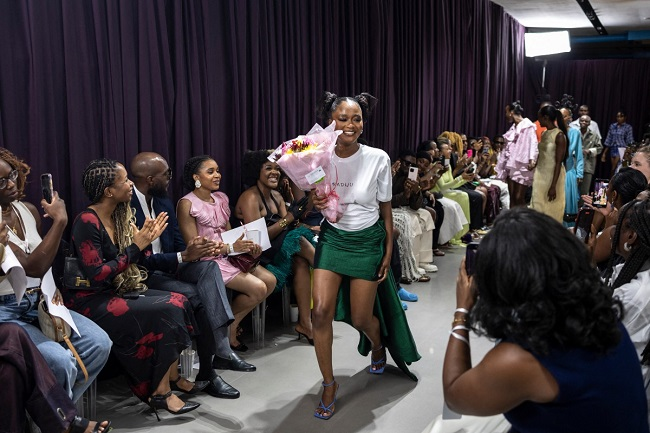
Nigerian designer Oyin Alesh at the brand Kadiju walks on the catwalk after a private show
Runway beauty in Lagos is at a turning point. The collaboration between brands, stylists, and designers can redefine what African fashion looks like on a global stage if creativity remains the focus. The balance between artistry and commerce will always exist, but the more the industry prioritises originality over obligation, the stronger its voice becomes.
So the next time you watch a show at Lagos Fashion Week, don’t just look at the clothes. Notice the hair, the make-up and pay attention to the complete look of the runway.
Photos by OLYMPIA DE MAISMONT / AFP
.svg)

.jpg)

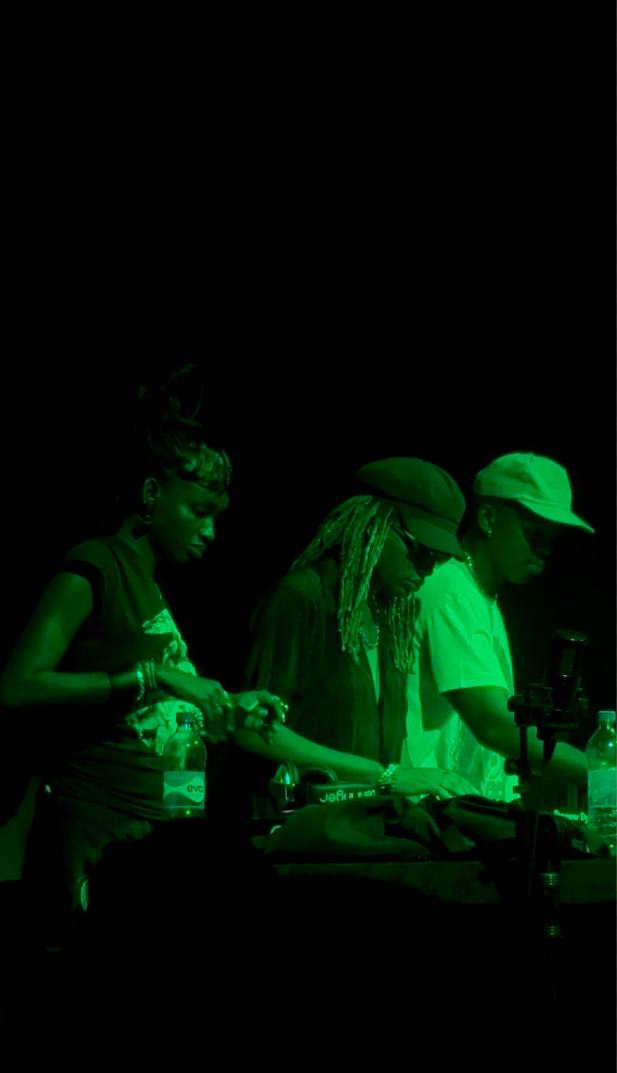
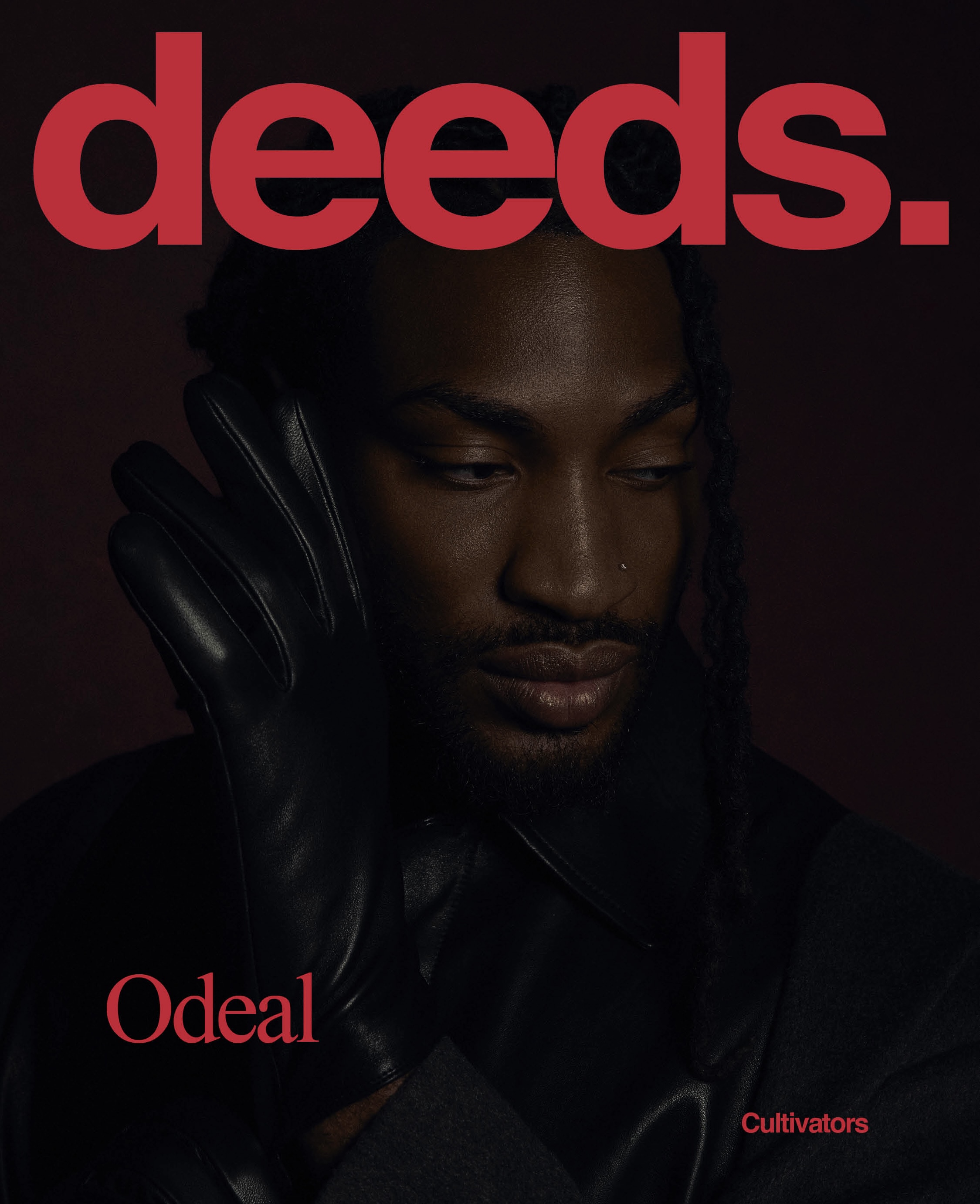


.png)

